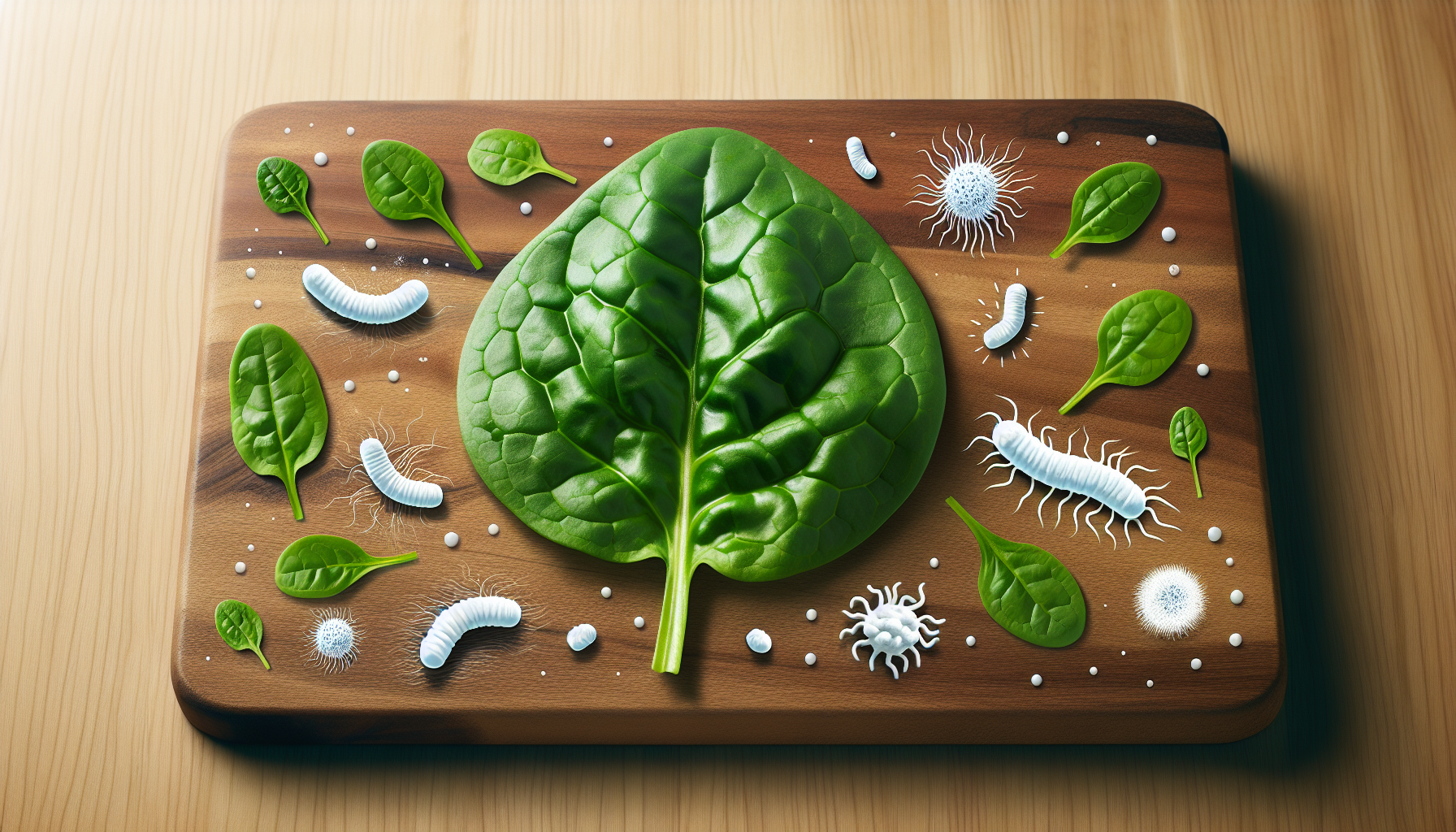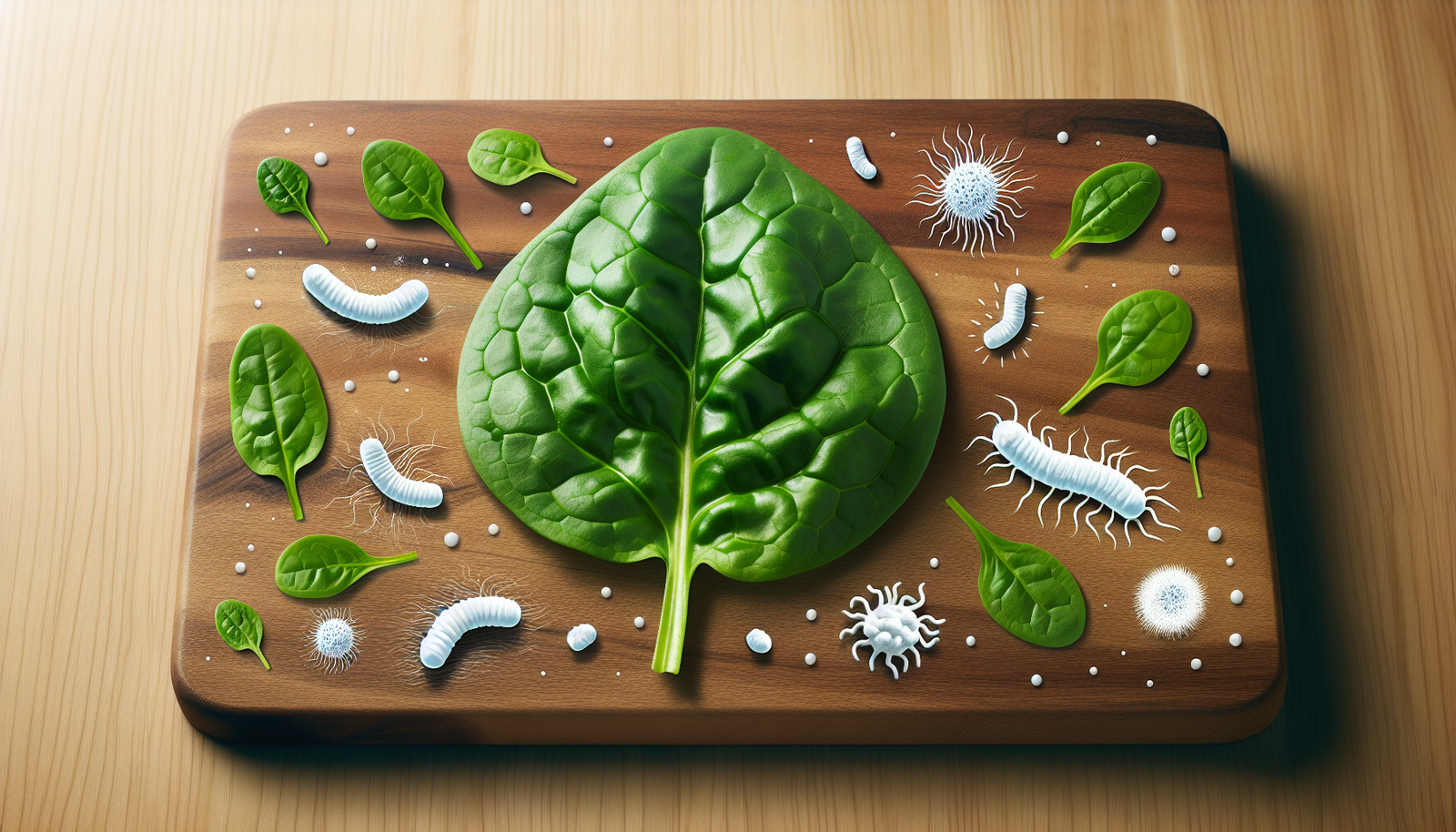Have you ever wondered about the foods you eat and how they impact your gut health? Specifically, do you know what oxalates are and whether they can affect your beneficial gut bacteria? Let’s unpack this topic together and get to the bottom of it.
Understanding Oxalates
Oxalates are naturally occurring compounds found in various foods and plants. While they play a role in certain plant processes, their relationship with human health is a bit more complex. On one hand, they can bind to minerals such as calcium and iron, potentially inhibiting the absorption of these nutrients in the body.
Where Are Oxalates Found?
You may be surprised to learn that oxalates are present in quite a variety of foods. Here’s a quick look at some common sources:
| Food Item | Oxalate Level |
|---|---|
| Spinach | High |
| Rhubarb | High |
| Almonds | Moderate |
| Sweet Potatoes | Moderate |
| Potatoes | Low |
| Broccoli | Low |
These foods can provide important nutrients, but they also bring oxalates into your system.
The Gut Microbiome
Now that you have a clearer idea of what oxalates are, let’s shift gears a bit and discuss your gut microbiome. Your gut is home to trillions of bacteria, viruses, and fungi, collectively known as the gut microbiota. This microbiome plays a crucial role in digestion, immunity, and overall health.
Beneficial Gut Bacteria
Not all bacteria are bad! In fact, beneficial gut bacteria aid in:
- Breaking down food
- Producing essential vitamins
- Regulating your immune system
Having a balanced gut microbiome with plenty of beneficial bacteria is key to maintaining your health.
The Interaction Between Oxalates and Gut Bacteria
You might be pondering the connection between oxalates and your gut health at this point. The question is: do oxalates impact your beneficial gut bacteria? Research is still developing in this area, but let’s break down what we know so far.
Oxalates and Gut Permeability
Some studies suggest that high levels of oxalates can increase gut permeability, sometimes referred to as “leaky gut.” This condition allows substances to pass through the gut lining into the bloodstream, which could trigger inflammation and disrupt the microbiome.
When the integrity of your gut lining is compromised, it may affect the diversity and health of your gut bacteria.
The Role of Gut Bacteria in Oxalate Metabolism
Interestingly enough, certain types of bacteria in your gut can metabolize oxalates. For example, Oxalobacter formigenes is a beneficial bacteria that helps break down oxalates, thereby reducing their potential negative effects on your health.
If your gut microbiome is balanced and includes these beneficial bacteria, oxalate intake might not pose significant harm. However, if your gut health is already compromised, high oxalate foods could potentially worsen the situation.
What Happens If You Overconsume Oxalates?
There’s a condition known as hyperoxaluria, where your body produces too much oxalate. This can lead to kidney stones and may interfere with nutrient absorption. If your gut bacteria aren’t adequately equipped to handle oxalates, you might find yourself facing some unwelcome health challenges.
Balancing Oxalate Intake
If you’re concerned about oxalates but still want to enjoy a diverse diet, you can take a few practical steps to balance your intake.
Know Your Sources
Familiarize yourself with the oxalate levels in the foods you eat regularly. Some foods are high in oxalates but also offer important nutrients. It’s about finding that balance.
Moderation is Key
You don’t have to eliminate high-oxalate foods entirely; moderation can be your best friend. If you enjoy foods like spinach or almonds, consider varying their intake with low-oxalate options like broccoli or potatoes.
Increase Your Fiber Intake
Fiber is another important component of your diet that supports gut health. High-fiber foods promote a diverse gut microbiome and can offset some of the adverse effects associated with oxalates. Foods like whole grains, fruits, and vegetables should be staples in your diet.
Hydration is Essential
Staying well-hydrated can help mitigate potential negative effects of oxalates by promoting proper kidney function. Adequate hydration can also aid in maintaining healthy gut bacteria.
Are You at Risk?
Perhaps you’re thinking about whether your diet or lifestyle puts you at risk for oxalate-related issues. Let’s go through some considerations.
Dietary Choices
If you have a diet high in oxalate-rich foods and low in fiber, you may be more prone to the negative effects of oxalates. Balancing your meals can be crucial.
Existing Health Conditions
Conditions like kidney disease, inflammatory bowel disease (IBD), or a history of kidney stones may put you at increased risk for complications related to oxalates. Always consult with a healthcare professional if you have questions or concerns about your diet and specific conditions.
Monitoring Your Symptoms
Being mindful of how foods make you feel is always important. If you notice bloating, abdominal pain, or symptoms associated with gut health, it might be worth reevaluating your diet.

Listening to Your Body
Ultimately, your body is an excellent communicator. Being attuned to how specific foods affect your wellbeing is key.
Food Sensitivity
Some individuals may have a sensitivity to oxalates that manifests in various gastrointestinal symptoms. If you suspect this could be a concern for you, it might be worth keeping a food journal to track symptoms.
Consult Professional Guidance
If you’re uncertain about managing your diet or if you experience significant gut-related issues, reaching out to a healthcare provider or a registered dietitian can be a game changer. They can provide personalized advice and help you establish a balanced regimen.

Final Thoughts
So, do oxalates kill beneficial gut bacteria? The jury is still out, but there’s compelling evidence that high oxalate intake can influence gut health, especially if your gut microbiome is out of balance. It’s essential to be proactive about your diet.
Keep in mind that variety, moderation, and listening to your body are all key players when it comes to managing your health. Your gut is a complex ecosystem, and taking care of it with thoughtful dietary choices will go a long way in promoting not just gut health, but overall wellness too.




